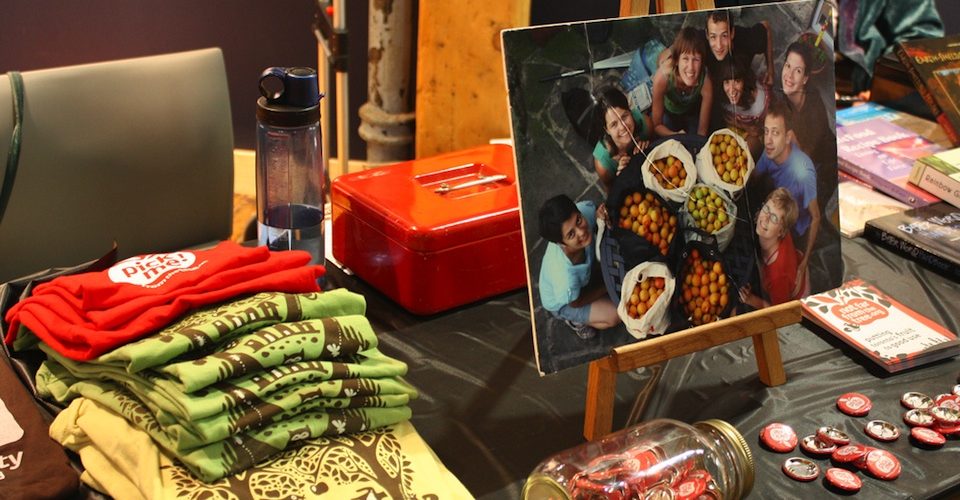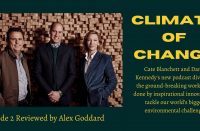The flow of information and ideas between community residents and policy makers is often a one-way street. When someone tries to flip that idea on its head, it seems almost utopian – until you realize that the flipside is how things ought to be.
Enter the Yes In My Back Yard! Festival, now entering its eighth year. Started back in 2006 by Christina Zeidler, it began as a response to what she and others saw as a lack of public reaction to the widespread development in Toronto’s Queen Street West area.
The flow of information and ideas between community residents and policy makers is often a one-way street. When someone tries to flip that idea on its head, it seems almost utopian – until you realize that the flipside is how things ought to be.
Enter the Yes In My Back Yard! Festival, now entering its eighth year. Started back in 2006 by Christina Zeidler, it began as a response to what she and others saw as a lack of public reaction to the widespread development in Toronto’s Queen Street West area.
The inaugural festival was held in the heart of trendy Queen West at the Gladstone Hotel as an attempt to relabel groups that had been identified as Not-In-My-Back-Yard organizations because of concerns over development. As the YIMBY Festival would tell it, these groups were actually in favour of community engagement and development, they just wanted local concerns taken into account.
“The idea was to create a positive, non-aggressive environment where politicians and community groups could come together and talk about the great work they were all doing while empowering those groups to feel active in driving policy,” said Gillian Mason, executive director of the Centre for City Ecology, the charitable organization that now spearheads the festival. “But there were few venues where community groups can come together with politicians in a positive setting, so this is how the idea was born.”
Mason echoed Zeidler’s stance that many groups slapped with the NIMBY label are actually in favour of many community projects – they simply oppose the tendency of community development to favour the wealthy and those with high-stakes interests, such as developers and politicians.
“These groups don’t often find a voice or are[n’t] given a voice until there is something for them to react to,” explains Mason. “So the idea is to have an ongoing conversation between community groups, developers, policy-makers and politicians about how to build a great city.”
The festival has outgrown the Gladstone as word has spread among groups throughout the sprawling city of Toronto. Participants at this year’s festival include representatives from Big Brothers and Sisters Toronto, the Birchmount Bluffs Neighbourhood Centre, Karma Food Co-op, Jane’s Walk, the Made In Toronto Film Festival, the Neighbourhood Arts Program and Spacing magazine.
Community activist Dave Meslin will also be speaking on behalf of the Ranked Ballot Initiative of Toronto (RaBIT) to encourage dialogue about how Toronto’s mayor and City Council are elected.
Mason said the festival is evolving beyond its roots to focus on the concerns of downtown residents. Given that community groups from across Toronto share many common concerns and ambitions, the festival has also expanded to accommodate a more diverse crowd. Inner suburban groups like the East Scarborough Storefront, Scarborough Civic Action Network and the North York Community House (among others) are new participants to this year’s festival.
“There are a number of groups from the inner suburbs that have not had a presence, but there has been a growth of activity in the inner suburbs and a jump in confidence in their ability to communicate their interests across the city, including downtown,” says Mason. “I think this is happening in different ways in different parts of the city, and people are just beginning to find out there are groups just like them across Toronto. I suspect there will be more suburban participants this year who will meet other groups that they share a lot in common with.”
In previous years, the YIMBY Festival has drawn federal and provincial politicians, in addition to appointed and elected municipal officials. While few have confirmed their attendance for this year (Saturday afternoons are prime real estate in most people’s calendars), Mason says that many political figures have signalled an interest in attending.
“The fact that these groups will find themselves in one room with policy makers will have an impact as they see other groups working on environmental issues of common concern,” says Mason. “In a big city like Toronto there are few venues for people from the north, south, east and west of the city to get together in a common, central space and learn what others are doing.”
The YIMBY Festival takes place on February 16 from 11:00 am to 4:00 pm at the Toronto Reference Library at 789 Yonge Street, just north of Bloor Street. To find out more, call the Centre for City Ecology at (416) 583-5763 or email info@yimbytoronto.org.
Andrew is a freelance environmental writer and reporter based in Toronto with a Masters in Geography from the University of Toronto. When he’s not writing he’s usually cycling around town, thinking about what to write next. Andrew’s posts appear weekly on Thursdays. You can read more of Andrew’s stuff at his own blog, The Reeves Report, or follow him on Twitter.
Andrew Reeves is the Editor-in-Chief of Alternatives Journal. Overrun, his book about Asian carp in North America, will be published in Spring 2019 by ECW Press. His work has also appeared in the Globe & Mail, Spacing and Corporate Knights. Follow him on Twitter.













